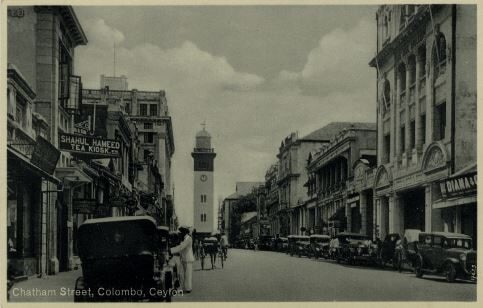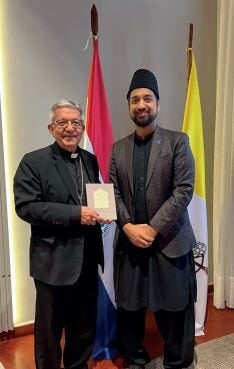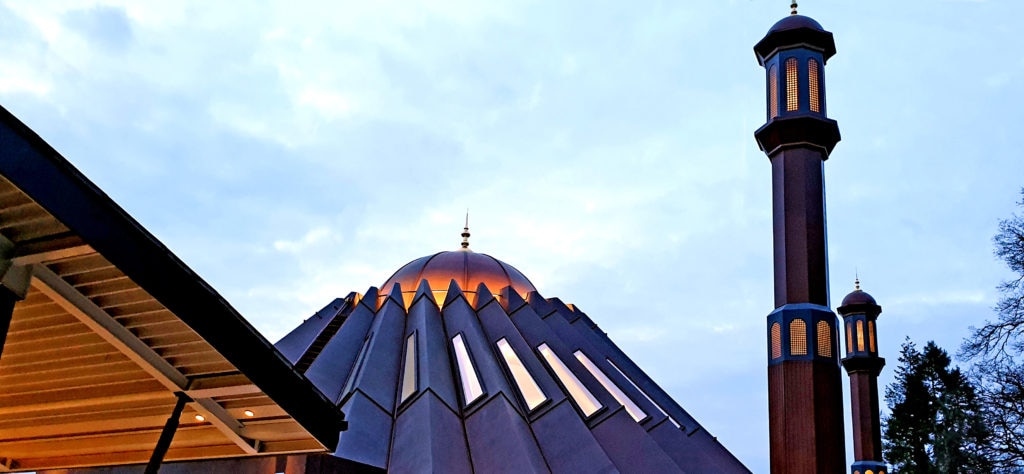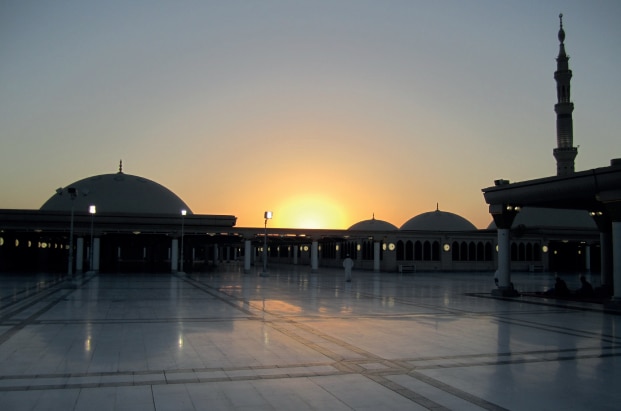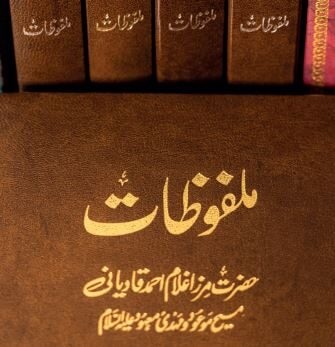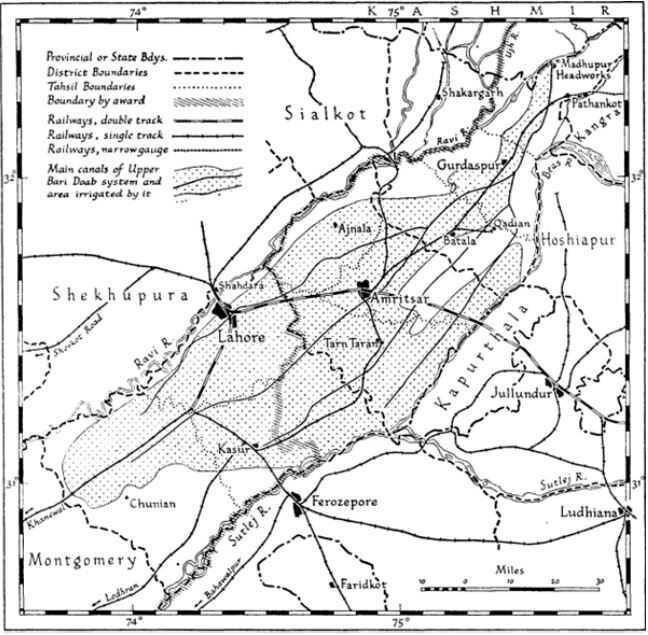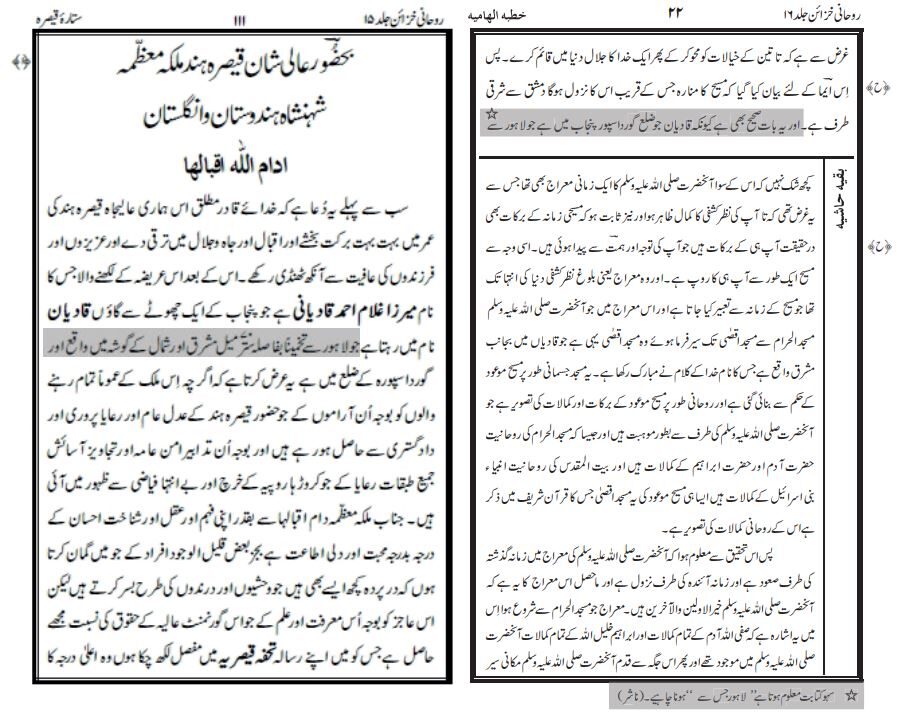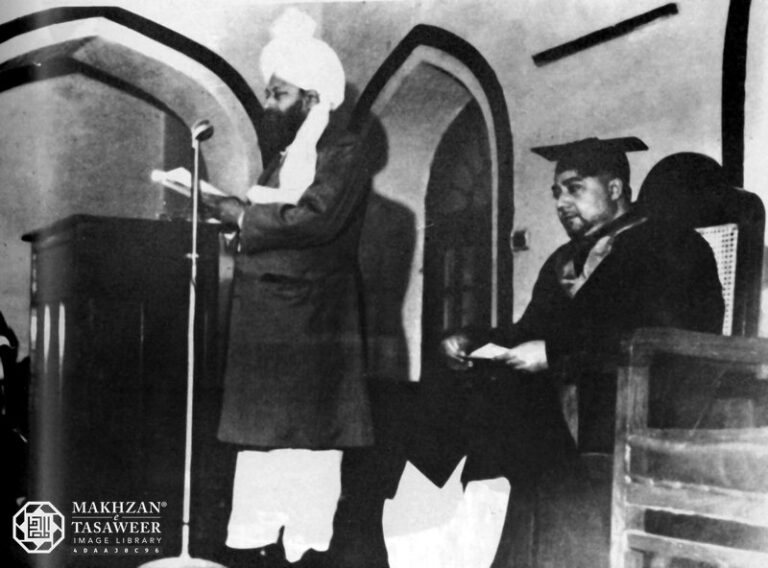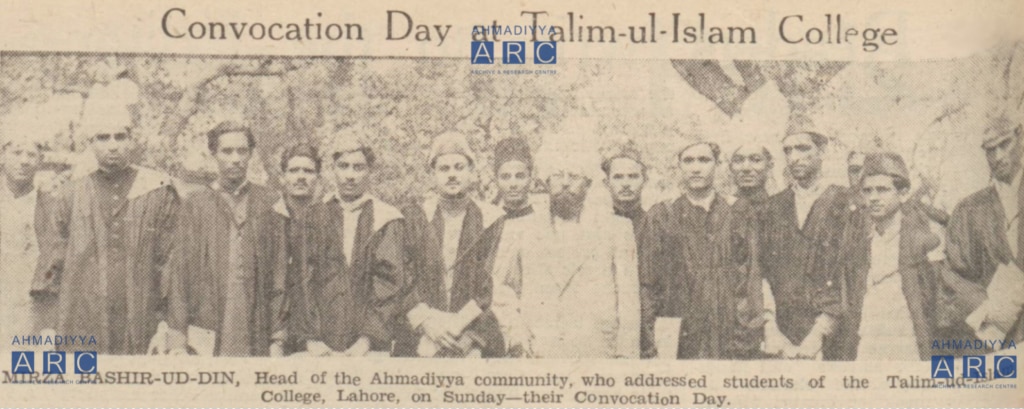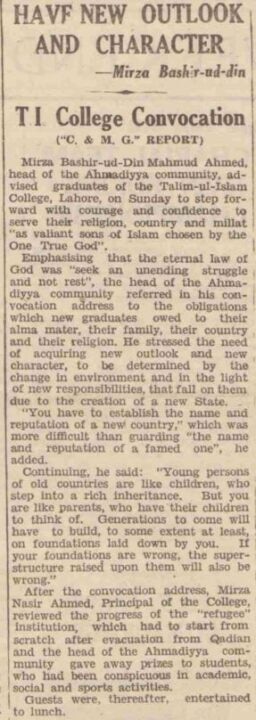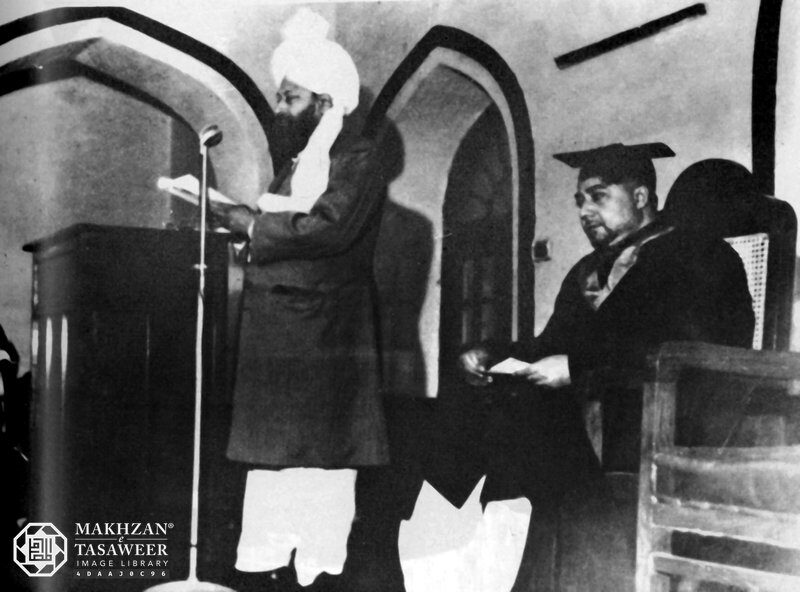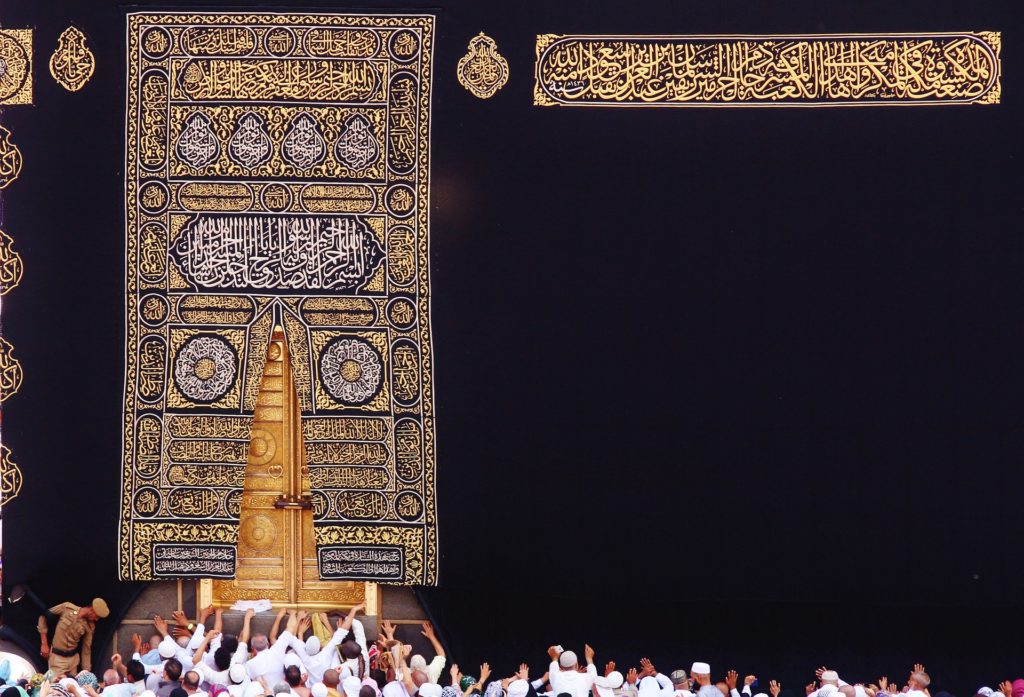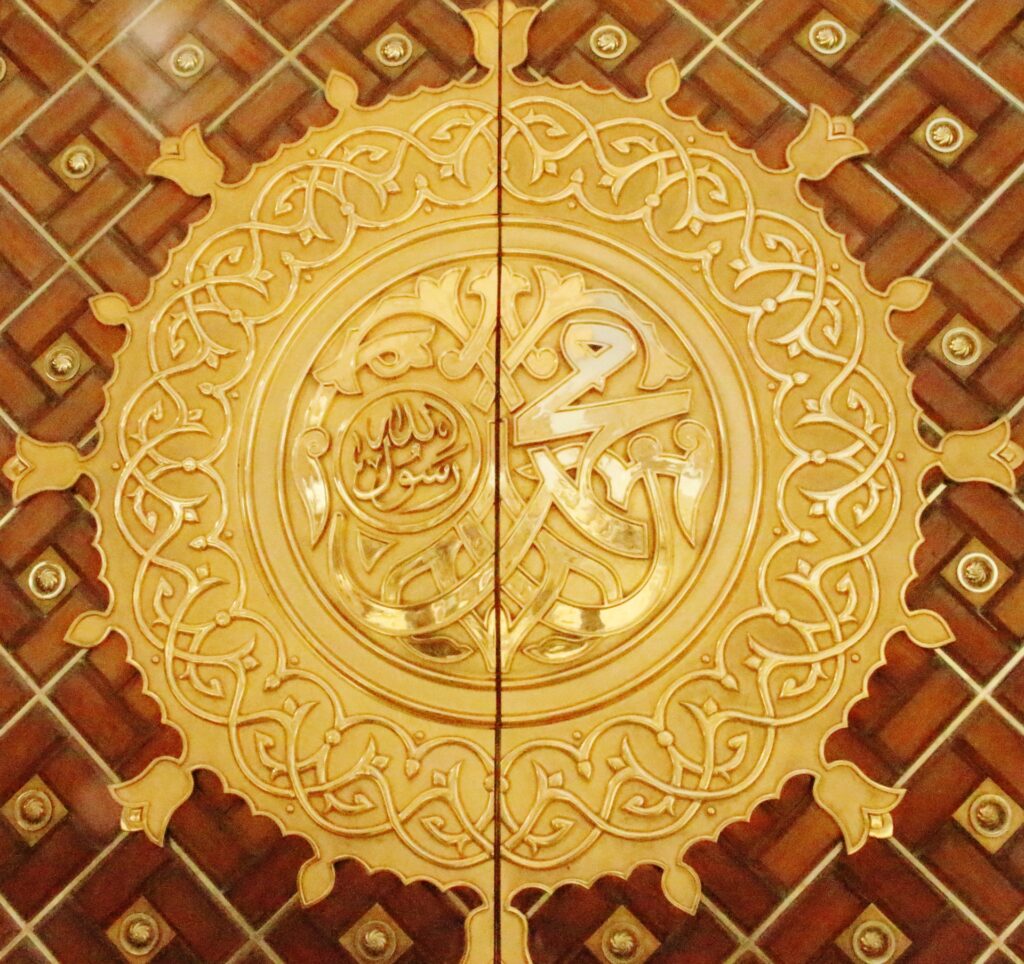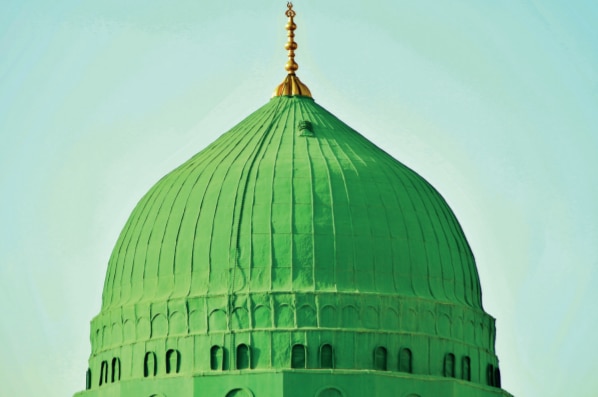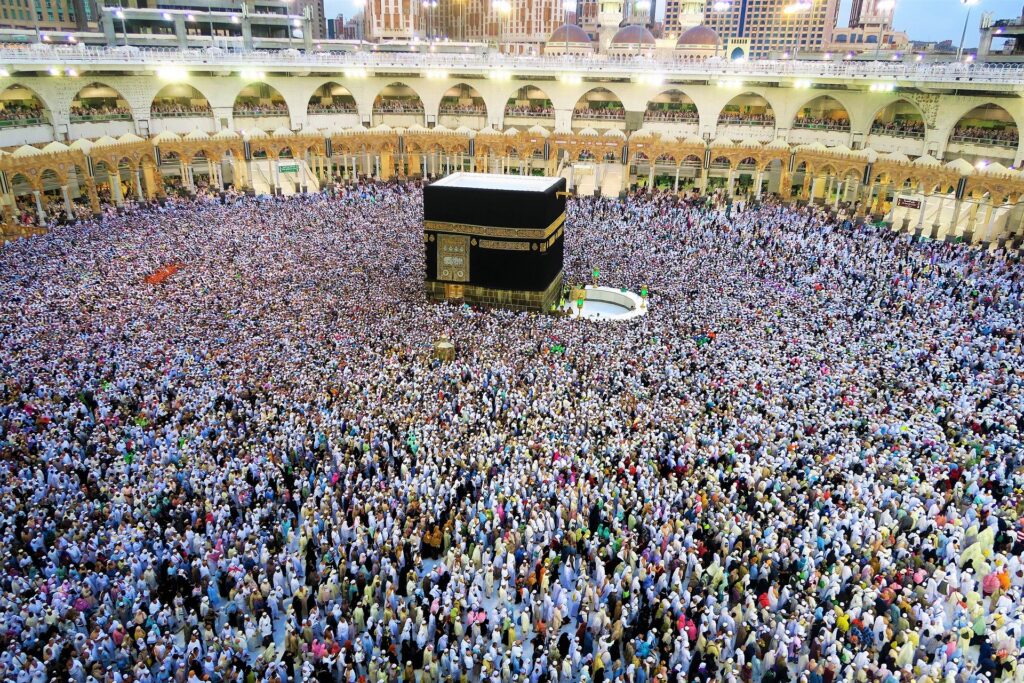Jalees Ahmad, Al Hakam
When writing about the Holy Prophet Muhammadsa – the greatest prophet to have graced the Earth with his presence and teachings – one cannot help but wonder where to begin. So much can be said about this perfect and noble Messengersa that attempting to summarise his life and character in one article would certainly fall short of doing justice. No matter how extensively one describes this Chosen One, Muhammadsa, the heart remains unsatisfied. His life, message, and every aspect of his being illuminate the heart, and even reciting the durood sharif is truly an honour for us Muslims. Simply being a follower of his is a blessing in and of itself.
Holy Prophetsa, the epitome of prophetic eminence
Without a doubt, the Holy Prophetsa is renowned as the paragon of all prophets and the epitome of humanity’s finest. It was through him that Allah the Almighty unveiled the perfect religion and brought the sharia to its ultimate culmination. He stands as the master of all prophets and the pinnacle of their ranks.
The Holy Prophetsa is reported to have said, and this has been mentioned by Ibn Kathir in his tafsir, that:
لو كان موسى وعيسى حيين لما وسعهما إلا اتباعي
“If Mosesas and Jesusas were alive, they would have no alternative but to follow me.” (Ibn Kathir, Tafsir ul Quran, Surah Aal-e-Imran, Ch.3: V.81)
The Holy Prophetsa, the final law-bearing Prophetsa, was and always is blessed until the Day of Judgement. He stands as the greatest guide. If any Prophet were alive in his time, they would have obeyed him. This is why he led them during the Night Journey when they convened in Jerusalem. He will also act as an intermediary when Allah gathers His servants and delivers just judgements. This special role belongs exclusively to him.
In light of the Holy Quran: Prophet’ssa names and some facts
The Holy Quran refers to the Holy Prophetsa in various names and also highlights some of his attributes. He is frequently addressed in the second person as Muhammad, Messenger, and Prophet, peace be upon him. The name ‘Muhammad’, which means ‘praiseworthy’, is mentioned four times in the Holy Quran:
وَمَا مُحَمَّدٌ اِلَّا رَسُوۡلٌ
“And Muhammad is only a Messenger” (Surah Aal-e-`Imran, Ch.3: V.145)
مَا كَانَ مُحَمَّدٌ اَبَاۤ اَحَدٍ مِّنۡ رِّجَالِكُمۡ وَلٰكِنۡ رَّسُوۡلَ اللّٰهِ وَخَاتَمَ النَّبِيّٖنَ
“Muhammad is not the father of any of your men, but [he is] the Messenger of Allah and the Seal of the Prophets” (Surah al-Ahzab, Ch.33: V.41)
وَالَّذِيۡنَ اٰمَنُوۡا وَعَمِلُوا الصّٰلِحٰتِ وَاٰمَنُوۡا بِمَا نُزِّلَ عَلٰي مُحَمَّدٍ وَّهُوَ الۡحَقُّ مِنۡ رَّبِّهِمۡ
“But [as for] those who believe and do good works and believe in that which has been revealed to Muhammad — and it is the truth from their Lord” (Surah Muhammad, Ch.47: V.3)
مُحَمَّدٌ رَّسُوۡلُ اللّٰهِ
“Muhammad is the Messenger of Allah” (Surah Al-Fath, Ch.48: V.30)
The Holy Quran also refers to the Holy Prophetsa by the name Ahmad. In Surah as-Saff, when Jesus prophesied the coming of the Prophet after him, he said:
يَّاۡتِيۡ مِنۡۢ بَعۡدِي اسۡمُهٗۤ اَحۡمَدُ ؕ
“‘and giving glad tidings of a Messenger who will come after me. His name will be Ahmad.’” (Surah as-Saff, Ch.61: V.7)
Abrahamas, the forefather of the prophets, prayed to Allah for the raising of a Messenger who would recite His signs, teach the book and wisdom, and purify people (2:130). This prayer found fulfilment in the Holy Prophetsa. Moreover, in Deuteronomy 18:18, a Messenger sent to the world is foretold; once more, this prophecy was none other than that of the Holy Prophet Muhammadsa.
As previously mentioned, the Holy Prophet’ssa name appears four times in the Holy Quran. The Quran affirms the Holy Prophet’ssa possession of impeccable qualities (20:2) and draws a comparison to Mosesas (73:16). He stands as the Seal of all Prophets (33:41) and the ultimate guide (36:2), whose path leads to earning God’s love (3:32) and achieving an elevated spiritual status (4:70).
The Holy Quran affirms that the Holy Prophetsa was sent as a Prophet to the world following an interval in the succession of Prophets (5:20).
A brief look at cultural and geographical dimensions of pre-Islamic Arabia
Geographically, Arabia can be divided into three dimensions: (i) flat land, (ii) mountains, and (iii) desert. (Sirat Sayed al-Anbiya, Shiekh Abdul Qadir Sahib, p. 2) It is known for being a dry and hot land that produces dates, grapes, figs, pears, and more. One of the popular foods in the region was tharid. Arabia was never centrally governed; instead, it was generally inhabited by tribes and vagabonds. Each tribe had a poet who was held in the highest regard. In pre-Islamic times, when a tribe was on the brink of war, they would call upon their poet. The poets would recite poetry, and the tribe whose poet delivered the most eloquent poem would often win the war. Speaking of conflicts, in pre-Islamic Arabia, fights between tribes often originated over trivial matters. A clear example of this reality can be seen in the Battle of Basus. (Ibid., pp. 9-13)
Muhammadsa, the orphan who adopted world
The Holy Prophetsa was born in Mecca around the year known as the Year of the Elephant, which saw the notable event of the failed attack on the Holy Ka’bah. His father’s name was Abdullah, and his mother’s name was Amina bint Wahab. He was born into the Quraish tribe in Mecca. Prior to his birth, his mother, Amina, experienced a dream in which she witnessed a radiant light emanating from her being. On the blessed day of Prophet Muhammad’ssa birth, his grandfather, Abdul Muttalib, carried him to the revered Kaaba, symbolising the sanctity of his arrival.
The Holy Prophet’ssa father passed away before his birth – while some accounts state that he passed away soon after his birth. His mother, Amina, passed away when Muhammadsa was six. Soon after, his guardianship was entrusted to Abdul Muttalib. Then, when his grandfather passed away, he was entrusted to Abu Talib, his uncle and the father of Alira.
“The mother of Muhammadsa passed away, and as a result, he became an orphan without a mother or father. At a young age, being away from home and loved ones, the grief at the loss of one’s mother when one’s father has already passed away is not a minor one. Hence, these happenings left a deep and ever-enduring effect on the heart of the Holy Prophetsa. Undoubtedly, the Prophetsa was sent as Rahmatullil-‘Alamīn, however, due to external causes, occurrences of this nature had a very deep influence on the disposition of Muhammadsa. To some extent, these initial grievances were the reason behind his immense love for the poor and special sympathy for the less fortunate; thus, his nature became exceptionally distinguished. The Holy Quran mentions the orphanage of Muhammadsa in the following words:
اَلَمۡ يَجِدۡكَ يَتِيۡمًا فَاٰوٰي … فَاَمَّا الۡيَتِيۡمَ فَلَا تَقۡهَرۡ
Did He not find thee an orphan and give thee shelter? So the orphan, oppress not.” (The Life & Character of the Seal of Prophetssa, Vol. I, pp. 136-137)
Young Muhammadsa and the sign of Bahira
Regarding the early life of the Holy Prophetsa, history provides us with many insights. Whether it is the events known as Shaqq al-Qamar, his involvement in al-Fijar, or his compassionate actions in Hilf al-Fudul, the noble character of the young Muhammadsa was evident from the outset. He was indeed recognised as Sadiq and Ameen by the Meccan residents, highlighting his remarkable noble character.
At the age of 12, Muhammad’ssa uncle had to travel to Syria. Due to the long and arduous journey, the young Muahmmad’ssa uncle initially planned to leave his nephew behind in Mecca. However, seeing his nephew’s emotional attachment and tears, Abu Talib took him along.
On this journey, in a place called Busra in southern Syria, a Christian monk named Bahira noticed rocks and plants prostrating as the caravan passed by. Based on divine scriptures, he recognised that a Prophet was present in the caravan, pinpointing the young Muhammadsa. Bahira informed Abu Talib, urging him to protect Muhammadsa.
Hazrat Mirza Bashir Ahmadra, in his works, has stated that the authenticity and details of this event, according to the science of narration, are weak. However, if this did indeed occur, it wouldn’t be surprising, as previous scriptures have foretold the arrival of Prophet Muhammadsa. (The Life & Character of the Seal of Prophets, Vol. 1, p. 138)
Muhammadsa in the Bible
The Holy Prophet’ssa lineage can be traced back to Ishmaelsa, while the offspring of Ishmaelsa stood as kin to the progeny of Isaac, known as the Israelites. He was, as stated in the Holy Quran, a Prophet likened to Moses (73:16).
“According to the Bible, the Ishmaelites lived in Paran, and Paran, according to Arab geographers, is the territory extending from Mecca to the northern border of Arabia. Paran, therefore, is part of Arabia, as certainly as the Quraysh, are the descendants of Ishmaelas. The divine glory that was to rise from Paran was, therefore, to rise from Arabia.” (Introduction to the Study of the Holy Quran, p. 69)
It is a customary practice of Allah, according to His infinite wisdom, that He reveals the forthcoming of a Prophet to one of His Messengers, as He desires. The Holy Quran has already mentioned Jesusas informing his people about the arrival of a Prophet named Ahmad.
The Bible has also mentioned the arrival of the Holy Prophetsa. It is widely recognised that Deuteronomy 18:18 refers to a Prophet who will come after Mosesas. A basic examination of the description provided in Deuteronomy aligns entirely with that of the Holy Prophet Muhammadsa:
“I will raise them up a Prophet from among their brethren, like unto thee, and will put my words in his mouth; and he shall speak unto them all that I shall command him.” (Deuteronomy, 18:18)
Every single point can be compared to the Holy Prophet. A wealth of literature is already accessible on this topic, and there’s no need for me to delve into it extensively. Furthermore, by examining passages such as Habakkuk (3:3-7) and Solomon (5:10-16), it becomes evident that the arrival of the Holy Prophetsa fulfils the prophecies outlined in the Bible regarding the advent of the greatest of the Prophets. (For a more thorough exploration of this, refer to the books Muhammad[sa] in The Bible and Introduction to the Study of The Holy Quran)
The man who emerged from the cave of Hira as a Prophet
By the age of 25, Muhammad, peace and blessings of Allah be upon him, was married. His wife’s name was Khadijara, who, by profession, was a businesswoman.
As a young man, he had a habit of retreating to the cave of Hira, where he would spend time contemplating. Surrounded by a society deeply immersed in idol worship, gambling, adultery, drinking, and immorality, our revered master, Muhammadsa, sought solace and tranquillity far removed from these vices. He would ascend the mountain, find a spot within the cave, and remain there for days, bringing provisions with him. It was within this setting that the revelation of the Holy Quran commenced during the month of Ramadan when Allah the Exalted bestowed the following words upon the pure heart of the Holy Prophet Muhammadsa:
اِقۡرَاۡ بِاسۡمِ رَبِّكَ الَّذِيۡ خَلَقَ
“Convey thou in the name of thy Lord Who created” (Surah al-‘Alaq, Ch.96: V.2)
The descent of the Holy Quran during the sacred month of Ramadan marked a pivotal moment in history, a transformation that reshaped Arabia and left an enduring impact on the world, evident even in the present day. Prior to the revelation of the Holy Quran, Arabia grappled with tribal strife, social inequality, and ethical deterioration. The verses of pre-Islamic Arabian poetry vividly depict this portrait of Arabia before the advent of Islam. Therefore, delving into the annals of early Islamic history makes it unequivocally apparent that the revolution initiated by the Holy Prophetsa was a monumental achievement gained through the grace of Allah.
The incident that followed is widely recognised among Muslims and in the history of Islam. Upon his return, the Holy Prophetsa said to his noble wife:
زَمِّلُونِي زَمِّلُونِي
“Wrap me! Wrap me!” (Sahih al-Bukhari, Kitab al-Tafsir, Hadith 4957)
The first person to accept Muhammadsa as the Messenger of Allah was none other than his wife, Hazrat Khadijara.
This incident is widely known and familiar to Muslims worldwide. Nevertheless, there’s a particular aspect I would like to emphasise. It is the manner in which Hazrat Khadijara consoled and supported the Holy Prophetsa in that critical moment. Just take a moment to envision the state in which the Holy Prophetsa found himself. Having undergone a transformative and fearful experience, he turned to his wife and said:
“I fear that something may happen to me.” Hazrat Khadijara replied, “Never! By Allah, Allah will never disgrace you. You maintain good relations with your kith and kin, help the poor and the destitute, generously serve your guests, and provide assistance to those afflicted by calamity.” (Sahih al-Bukhari, Kitab Bada’ul Wahi, Hadith 3)
It was at this very moment that Waraqah bin Nawfal, a cousin of Hazrat Khadijahra, informed him that the same angel who had appeared to Muhammadsa was the very angel who had brought revelation to Mosesas.
When he was commissioned
Prophets of Allah are recognised among their own people as virtuous and noble individuals. As previously mentioned, the Holy Prophetsa was known as Sadiq and Amin (truthful and trustworthy), and Prophet Salihas was also renowned for his noble qualities. However, as was the norm during the time of a prophet, people acknowledged these virtues. Yet, as soon as the Prophet declared his mission, they started to deny these attributes. The same pattern occurred with our master, the Holy Prophet of Islam, Muhammadsa.
When it was revealed to the Holy Prophetsa, “And warn thy nearest kinsmen,” (26:214), he went out, climbed as-Safa mountain, and called out to the people there. As they assembled around him, he inquired, “‘If I inform you that cavalrymen are proceeding up the side of this mountain, will you believe me?’ They said, ‘We have never heard you telling a lie.’ Then he said, ‘I am a plain warner to you of a coming severe punishment.’”
Upon hearing this, Abu Lahab exclaimed:
تَبًّا لَكَ
“May you perish!” And went on to say. “You gathered us only for this reason?”
Then, when Abu Lahab went away, God revealed:
تَبَّتۡ يَدَاۤ اَبِيۡ لَهَبٍ وَّتَبَّ
“Perished be the two hands of Abu Lahab, and he will perish.” (Sahih al-Bukhari, Kitab at-tafsir, Hadith 4801)
Hence, Prophets of Allah often face denial, even from those who are well acquainted with them and aware of their noble attributes.
Holy Prophet’ssa expanding message
Although the Holy Prophetsa was raised as a Prophet for all of mankind, he was initially informed:
وَاَنۡذِرۡ عَشِيۡرَتَكَ الۡاَقۡرَبِيۡنَ
“And warn thy nearest kinsmen,” (Surah ash-Shu‘ara’, Ch.26: V.215)
When this verse was revealed, the Holy Prophetsa advised his household members that their relationship with him would not spare them from divine wrath; instead, it would be their own righteous deeds that could save them. (Sahih al Bukhari, Kitab al-wasaya, Hadith 2752)
Initially, Allah the Almighty instructed him to warn only his closest relatives. Allah Almighty later revealed in the Holy Quran:
وَهٰذَا كِتٰبٌ اَنۡزَلۡنٰهُ مُبٰرَكٌ مُّصَدِّقُ الَّذِيۡ بَيۡنَ يَدَيۡهِ وَلِتُنۡذِرَ اُمَّ الۡقُرٰي وَمَنۡ حَوۡلَهَا
“And this is a Book which We have revealed, full of blessings, to fulfil that which preceded it, and to enable thee to warn the Mother of towns and those around her.” (Surah al-An‘am, Ch.6: V.93)
Then, the Holy Prophetsa was told:
وَمَاۤ اَرۡسَلۡنٰكَ اِلَّا كَآفَّةً لِّلنَّاسِ بَشِيۡرًا وَّنَذِيۡرًا
“And We have not sent thee but as a bearer of glad tidings and a Warner, for all mankind” (Surah Saba, Ch.34: V.29)
It was only after this that Allah the Almighty revealed to him that he was the prophesied Messenger in both the Old and New Testaments, designated for the People of the Book.
قُلۡ يٰۤاَيُّهَا النَّاسُ اِنِّيۡ رَسُوۡلُ اللّٰهِ اِلَيۡكُمۡ جَمِيۡعَا ۣالَّذِيۡ لَهٗ مُلۡكُ السَّمٰوٰتِ وَالۡاَرۡضِ ۚ لَاۤ اِلٰهَ اِلَّا هُوَ يُحۡيٖ وَيُمِيۡتُ ۪ فَاٰمِنُوۡا بِاللّٰهِ وَرَسُوۡلِهِ النَّبِيِّ الۡاُمِّيِّ الَّذِيۡ يُؤۡمِنُ بِاللّٰهِ وَكَلِمٰتِهٖ وَاتَّبِعُوۡهُ لَعَلَّكُمۡ تَهۡتَدُوۡنَ
“Say, ‘O mankind! truly I am a Messenger to you all from Allah to Whom belongs the kingdom of the heavens and the earth. There is no God but He. He gives life, and He causes death. So believe in Allah and His Messenger, the Prophet, the Immaculate one, who believes in Allah and His words; and follow him that you may be rightly guided.’” (Surah al-A‘raf, Ch.7: V.159)
In a remarkably beautiful and emphatic proclamation, this verse affirms that the Promised Prophet, as prophesied in both the Old and New Testaments, has indeed been fulfilled through the advent of the Holy Prophetsa. A study of (Matthew: 6:10) and Prophet Jesus’as prayer will affirm this.
Then, Allah the Almighty revealed to the Holy Prophetsa:
وَمَاۤ اَرۡسَلۡنٰكَ اِلَّا رَحۡمَةً لِّلۡعٰلَمِيۡنَ
“And We have sent thee not but as a mercy for all peoples.” (Surah al-Anbiya’, Ch.21: V.108)
Then, another point that must be remembered is that Surah al-Ahzab, in which the Holy Prophetsa was given the title “Khatam-un-Nabiyeen,” was revealed after the hijra. In fact, through a study of history and the context of the verse, we can confidently assert that the revelation of the Surah spanned from the 5th to the 7th year of the Hijrah.
مَا كَانَ مُحَمَّدٌ اَبَاۤ اَحَدٍ مِّنۡ رِّجَالِكُمۡ وَلٰكِنۡ رَّسُوۡلَ اللّٰهِ وَخَاتَمَ النَّبِيّٖنَ
“Muhammad is not the father of any of your men, but [he is] the Messenger of Allah and the Seal of the Prophets” (Surah al-Ahzab, Ch.33: V.41)
One could argue why the Holy Prophetsa did not announce this title right from the beginning. From this, it is clear that the prophets of God only proclaim what they have been commanded by Allah. Allah the Almighty gradually revealed to the Holy Prophetsa that he was a Prophet for all of humanity over time, rather than all at once.
Holy Prophet’ssa method of taking bai‘at
In Islamic history, the initial significant bai‘at happened when the Holy Prophetsa met 12 men, including five prior converts, from Yathrib in Aqabah during his 12th prophetic year. They pledged allegiance to him. After the bai‘at, the Holy Prophetsa said:
“If you remain true to this pledge in honesty and steadfastness, then you shall gain Paradise. But if you show weakness, then your matter is with Allah the Exalted, for He shall do what He wills.” (The Life & Character of the Seal of Prophets, Vol. 1, p. 304)
Upon their departure, the Yathrib group asked the Holy Prophetsa to send someone for continued Islamic education. He sent Hazrat Mus‘abra bin Umair, marking the First ‘Aqabah Pledge in history.
Around 70 people travelled to meet the Holy Prophet the following year. Concerned about growing persecution, he arranged a private night meeting in pairs. During this meeting, he explained Islam and recited Quranic verses, after which all pledged allegiance to him.
Among them was Hazrat Abdullahra bin Kaab, who later narrated:
“I witnessed the al-‘Aqabah pledge of allegiance at night with the Prophetsa when we jointly agreed to support Islam with all our efforts.” (Sahih al-Bukhari, Kitab manaqib al-Ansar, Hadith 3889)
The Holy Prophet’ssa approach was straightforward: he would offer his hand, and the Companionsra would hold it, pledging their allegiance. The Holy Quran has already shed light on this. In Surah al-Fath.
When people came for bai‘at, the Holy Prophetsa would grasp their hands. Believers pledged to follow his decisions, and with women, a verbal oath was taken. In this regard, Hazrat Aishara narrates:
“The Holy Prophetsa used to take the pledge from the women only verbally after reciting this verse [of Surah al-Mumtahinah, Ch.60: V.13] لَّا يُشۡرِكۡنَ بِاللّٰهِ شَيۡئًا ‘[…] they will not associate anything in worship with Allah.’” (Sahih al-Bukhari, Kitab al-ahkam, Hadith 7214)
Various titles of the Holy Prophetsa mentioned in the Holy Quran
The Holy Prophet is recorded in the Holy Quran as:
النَّبِيُّ
(3:69)
الۡاُمِّيَّ
“the Immaculate one” (7:158)
نَذِيۡرٌ وَّبَشِيۡرٌ
“a Warner, and a bearer of glad tidings” (11:3)
رَحۡمَةً لِّلۡعٰلَمِيۡنَ
“a mercy for all peoples” (21:108)
اُسۡوَةٌ حَسَنَةٌ
“an excellent model” (33:22)
خَاتَمَ النَّبِيّٖنَ
(33: V.41)
سِرَاجًا مُّنِيۡرًا
“a Lamp that gives [bright] light” (33:47)
رَسُوۡلٍ كَرِيۡمٍ
“a noble Messenger” (69:41)
The Holy Prophetsa has also been referred to by names that mirror his state at various times. For instance, he has been called:
الۡمُزَّمِّلُ
“who art bearing [a heavy responsibility]” (73:2)
“In view of different significations of the word مزمل the verse has been variously interpreted. The simple explanation is the one given in Bukhari. After his first spiritual experience, when the angel of God came to the Holy Prophet with Divine revelation, he rushed home very frightened. The fright was quite natural because the experience was quite novel. The Prophet asked to be wrapped in a mantle. As wrapping also implies the sense of joining together and uniting, the meaning of the verse may be something like this, “O thou who art to unite the nations of the world under one banner!” The Holy Prophet has been described in the Hadith as الحاشر i.e. the Joiner and Uniter of the nations of the world (Bukhari, Kitab Manaqibun-Nabi).” (Five Volume Commentary, Vol. 5, p. 3245)
الۡمُدَّثِّرُ
“wrapped [thyself with thy mantle!]” (74:2)
“According to the different meanings of the root word, المدثر would mean: the effacer or obliterator; the reformer or the one who adjusts or puts things in order; the vanquisher; the one who is ready to leap upon and ride the horse. The word has also been interpreted as one entrusted with bearing the heavy load of the responsibilities of a Prophet (Qadir). The word also means, one adorned with the best human natural powers and qualities and prophetical dignity (Ruhul Ma‘ani). All these epithets fully apply to the Holy Prophet. Traditions show that after a few verses of the Surah had been revealed, further revelation ceased for several months (Bukhari). As revelation was a novel spiritual experience for the Holy Prophet, its cessation was intended to make the fright that had affected his mind wear away, and to attune him with the majesty and dignity of the Divine Word.” (Five Volume Commentary, Vol. 5, p. 3254)
مُذَكِّرٌ
“an admonisher” (88:22)
Moreover, the Holy Prophetsa is recognised as Ibn Abdil Muttalib (Sahih al-Bukhari 2930) due to his descent from Abdul Muttalib. He is also known as Abu Qasim (Sahih al-Bukhari 3539) since Qasim was a son born to him and his wife, Hazrat Khadijara.
Further, the Holy Prophetsa is known by various names and titles, including Mustafa, Mujtaba, Saadiq, Ameen, Kaamil, Khair al-Bashar, and numerous others.
How the Holy Prophetsa established Tawhid [God’s Oneness]
A study of the lives of the Prophets will undoubtedly reveal that the true message they all brought was from the One God and centred around establishing Tawhid [Allah’s Oneness] in the world. The concept of One God has been at the core of the teachings of all prophets.
Undoubtedly, the Holy Prophetsa was also entrusted with this mission. Raised as a Prophet of Allah in Mecca, Arabia, a land where idol worship prevailed and up to 360 idols were housed within the Kaaba, the task of establishing the Oneness of God was bestowed upon the Holy Prophetsa. This responsibility extended not only to Arabia but also to the entire world.
A teaching that reinforced the concept of God’s Oneness, as mentioned in the Holy Quran and shared by the Holy Prophetsa, is the belief in the arrival of prophets to all nations:
وَاِنۡ مِّنۡ اُمَّةٍ اِلَّا خَلَا فِيۡهَا نَذِيۡرٌ
“And there is no people to whom a Warner has not been sent.” (Surah Fatir, Ch.35: V.25)
Tawhid, in its truest sense, can simply not be established without this belief.
Further, we read:
وَلَقَدۡ بَعَثۡنَا فِيۡ كُلِّ اُمَّةٍ رَّسُوۡلًا
“And We did raise among every people a Messenger.” (Surah an-Nahl, Ch.16: V.37)
Through these teachings and verses, the Holy Prophetsa established that Prophets were sent to all nations in the past, each imparting the message of the One God.
On this very topic, Hazrat Musleh-e-Maudra explained:
“When a nation considers that God sent prophets or awtar to them exclusively-no one else it also creates a delusion that this nation has its own, unique god. Once this misconception spreads among everyone, it will create a sense of national gods in the world, instead of an all-embracing view that God Almighty is the Creator of all people. Every community will hold the insular belief that they have an exclusive god who belongs only to them and disregards other nations; it will present a very narrow concept of God.” (Unity of God and the Teachings of Muhammadsa, p. 11)
Thus, after stating that prophets had been sent to all nations, the Holy Prophetsa was told to announce:
قُلۡ يٰۤاَيُّهَا النَّاسُ اِنِّيۡ رَسُوۡلُ اللّٰهِ اِلَيۡكُمۡ جَمِيۡعَا
“Say, ‘O mankind! truly I am a Messenger to you all from Allah” (Surah al-A‘raf, Ch.7: V.159)
In this context, when we contemplate the insight shared by Hazrat Musleh-e-Maudra, we recognise that the Holy Prophetsa proclaimed a universal religion that amplifies the essence of Tawhid.
Prophecies of the Holy Prophetsa about Latter Days and condition of Islam
1400 years ago, the Holy Prophetsa, while addressing his Companionsra and describing the future of Islam, said:
“A time is soon coming to mankind when nothing of Islam but its name will remain and only the written form of the Quran will remain. Their mosques will be in fine condition but will be devoid of guidance, their clerics will be the worst people under heaven, corruption will come forth from them and return among them.” (Mishkat al-Masabih, Kitab al-‘ilm, Hadith 276)
The essence of this hadith foretells a period when outwardly Islamic practices will persist, but the true essence and guidance of Islam will be lost. It was then that the Holy Prophetsa said that the Mahdi will come to revive the faith. A study of Surah al-Jumuah shall reveal this very matter.
Hazrat Abu Hurairahra narrated:
“While we were sitting with the Prophetsa, Surah al-Jumua was revealed to him, and when the Verse, ‘And He (Allah) has sent him (Muhammad) also to other (Muslims)…’ (62:3) was recited by the Prophet, I said, ‘Who are they, O Allah’s Messenger?’ The Prophetsa did not reply until I repeated my question three times. At that time, Salman al-Farisira was with us. So Allah’s Messengersa put his hand on Salman, saying, ‘If Faith were at (the place of) Ath-Thuraiya (Pleiades, the highest star), even then (some men or man from these people (i.e. Salman’s folk) would attain it.’ (Sahih al-Bukhari, Kitab al-Tafsir, Hadith 4897)
Then, in another place, we read:
“What befell the children of Israel will befall my Ummah, step by step, such that if there was one who had intercourse with his mother in the open, then there would be someone from my Ummah who would do that. Indeed, the children of Israel split into 72 sects, and my Ummah will split into 73 sects. All of them are in the Fire Except one sect.” He was asked: “And which is it, O Messengersa of Allah?” He said: “What I am upon and my Companions.” (Jami‘ at-Tirmidhi, Kitab al-Iman ‘an rasulillahsa, Hadith 2641)
In relation to the Mahdi, the Holy Prophetsa stated:
“For our Mahdi there are two signs that have never appeared before since the creation of the Heavens and the Earth, namely that the Moon will be eclipsed on the first night in Ramadan [i.e., on the first of the nights on which a lunar eclipse can occur] and the Sun will be eclipsed on the middle day [i.e., on the middle one of the days on which a solar eclipse can occur]. And these signs have not appeared since God created the Heavens and the Earth.” (Sunan ad-Daraqutni, Kitab al-eidayn)
Then, with regards to the Promised Messiahas and his Khulafa, he said:
“Prophethood shall remain among you as long as Allah wills. He will bring about its end and follow it with Khilafat on the precepts of prophethood for as long as He wills, and then bring about its end. Kingship shall then follow, to remain as long as Allah wills and then come to an end. There shall then be monarchical despotism, which shall remain as long as Allah wills and come to an end upon His decree. There will then emerge Khilafat on the precepts of prophethood.” Prophet Muhammadsa then became silent.” (Musnad Ahmad bin Hanbal, Kitab al-Riqaq, Bab al-Andhar wa al-Tahdhir)
These were the prophetic words of the Holy Prophetsa in which he laid out the future events of Islam.
In the Five-Volume Commentary, under the aforementioned verse of Surah an-Nur, we read about the three types of Khilafas the Holy Quran mentions.
The first kind is those khulafa who are prophets of Allah, for example, Prophet Adamas: “I am about to place a vicegerent in the earth” (Surah al-Baqarah, Ch. 2: V. 31), and Prophet Davidas: “O David, We have made thee a vicegerent in the earth” (Surah Sad, Ch.38: V.27), both of whom the Quran says were khulafa.
The second type of khalifa mentioned in the Holy Quran is those prophets who were khulafa of another prophet. For example, the Prophets of Israel were all the khulafa of Prophet Mosesas. Alluding to these khulafa, Allah the Almighty states, “Surely, We sent down the Torah, wherein was guidance and light. By it did the Prophets, who were obedient [to Us], judge for the Jews”. (Surah al-Maidah, Ch.5: V.45)
The third type is “non-prophet khulafa of a prophet, with or without temporal powers, such as godly people learned in the Law. Their mission is to protect and preserve the law from being tampered with.” (Five Volume Commentary, Ch.24: V.56, p. 2289)
Jesusas and Imam Mahdias: Separate descriptions of Jesusas and Ahmadas, the anticipated Messiah
Concerning the latter-day Messiah and Mahdi, as mentioned above, a misconception has taken root among Muslims, suggesting that Jesusas was raised and will subsequently return. It is not within the scope of this context to engage in a theological debate, as this subject has already been extensively explored in writing. However, it is worth noting that the Holy Prophetsa saw the anticipated Messiah – whom we recognise as Ahmadas – in a dream.
Below, I have provided two ahadith from Sahih al-Bukhari in which the characteristics of both Jesusas and Ahmadas – the anticipated Messiah – have been referenced as two separate people.
The Holy Prophetsa, upon seeing Jesus on the night of the Miraj, said: “Jesus was of red complexion, curly hair, and a broad chest.” (Sahih al-Bukhari, Kitab ahadith al-anbiya, Hadith 3438)
Then, with regards to seeing Ahmadas, the latter-day Messiah and Mahdi, the Holy Prophetsa said:
“I saw in my dream a man of brown colour, the best one can see amongst brown people, and his hair was long enough that it fell between his shoulders. His hair was lank and water was dripping from his head, and he was placing his hands on the shoulders of two men while circumambulating the Kaaba. I asked, ‘Who is this?’ It was replied, ‘This is Jesusas, son of Mary.’” (Sahih al-Bukhari, Kitab ahadith al-Anbiya, Hadith 3439 – 3440)
Hence, the two descriptions distinguish between Jesus of Nazareth and the Jesusas of the Latter Days as two distinct individuals.
